Episodes
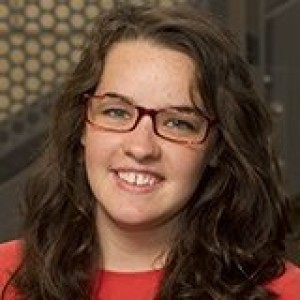
Monday Sep 02, 2019
Episode 075 - Megan Levis, part 1
Monday Sep 02, 2019
Monday Sep 02, 2019
- Megan Levis is a fifth-year graduate student in bioengineering at the University of Notre Dame. The topic of her talk at the annual conference of the Society of Catholic Scientists was “Created in the Image and Likeness of Man.” She described the University’s bioengineering program.
- Growing what can be deemed the beginnings of a human brain, for purposes of research, invites important ethical considerations. Levis has found resources at and through Notre Dame for deeper study of the responsibilities entailed in such research. She has worked with the John J. Reilly Center on science, technology and values. She has also been part of the Leadership Advancing Socially Engaged Research (LASER) program within the Graduate School.
- Levis participated in an NSFsupported workshop on engineering design principles of multicellular living systems. Such workshops reflect a growing nationwide interest in the ethical and societal ramifications of rapidly developing technology related to systems of living things. The interest is prompting collaboration among philosophers, scientists, ethicists and engineers.
- It’s a false dichotomy to separate faith and engineering. Levis said her advisor [Jeremiah Zartman] has been supportive of integrating values-related concerns, and that integration has made her research better. Now that there is an increased focus in bioengineering on the transfer, or translation, of knowledge from the lab bench to hospitals and clinical practice, the assessment of ethical implications is even more important.
- Organoids are systems built from human cells that begin to look like an organ. In this new field, it’s important to create room for philosophical understanding, but right now the field is dominated by engineers and scientists largely using terms that sound like clunky jargon. Philosophy tells us we need to define our terms better, Levis said. We need better ways to describe what’s going on in accessible ways that allow for ethical thinking. Engineers tend to look at every component in its specifics, but there is value in seeing how one thing is similar to something else so both may come under similar ethical principles.
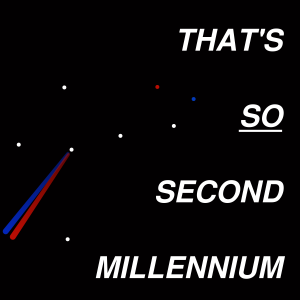
Thursday Aug 29, 2019
Post Christian: The Galileo business in 250 words
Thursday Aug 29, 2019
Thursday Aug 29, 2019
I prepared these notes for an interview with Brigid Ayer on the Faith in Action Show for Catholic Radio Indy, but ended up using almost none of them. We talked instead about matters in the present day, and why Bill (also on the interview) and I started TSSM. The interview is planned to go up the third week of September, with the podcast version of the episode on their PodBean feed Monday the 16th and the radio broadcast later in the week.
The dominant proximate source for this was a blog post or two from the Vatican Observatory blog, which I cannot even find right now, due to a surplus of riches in their coverage of the subject. For your own purposes, there are also a million books. I loved Galileo's Daughter; I haven't yet gotten up the courage to tackle The Galileo Affair: A Documentary History.
Science, Church, Galileo.
The Galileo affair was a messy piece of work, which a number of people, bishops and cardinals included, inside the Church recognized at the time. Galileo himself remained a Catholic and endured his condemnation with irritation as an obvious miscarriage of justice and a misapplication of the Church's own teachings. At the time, his ideas were considered by a number of people to be heretical both because they contradicted simple-minded interpretations of certain passages in the Bible and because, essentially, they contradicted Aristotle.
Aristotle's philosophy is immensely insightful, and continues to be a viable means of interpreting reality, but not all of it equally. The Scholastics had fought a long campaign to integrate Aristotle into the fabric of Christian doctrine, and the result was a beautiful intellectual accomplishment, but it allowed Aristotle to take too much significance even in matters where his thinking is simply not that insightful or valuable. He took the geocentric universe for granted.
When Galileo set out to prove the geocentric model wrong, it was easy for people at that time of religious turmoil to condemn him. On one side, Catholics who were sensitive to the shrill Protestant shrieking about Scripture were not eager to be forced into reading the handful of passages that seem relevant to the issue poetically or figuratively. On the other, in attacking something that Aristotle taught, essential or not to his philosophical framework, Galileo could be read by others to be trying to overturn all of philosophy and theology along with it.
The condemnations of 1633 were never enforced all that rigidly, and during the 18th and 19th centuries the official proscriptions on his thought and writings were loosened. The popes since Leo XIII have piece by piece vindicated Galileo completely, culminating in two statements by John Paul II (in 1991 and 2000, as I recall, and also belonging on the reading list) that said the cardinals and popes in 1613-1633 had made mistakes and been wrong to treat Galileo the way that they did.
The condemnation of Galileo was never a matter of infallible magisterium. The magisterium of the Church is exercised in the matters of faith and morals, not astronomy or philosophy, and not even social science. Further, the trial of an individual is not the sort of place one would look for magisterial teaching. Some of the Ecumenical Councils were called to try heretics like Arius, and those are the very definition of magisterial teaching, but you only get an E.C. called to debate your writings if you have 1) a massive movement, hence your trial is not really about you, but about ideas wandering at large in society and 2) the issue you are leading people on about is actually squarely in the arena of the teachings of the faith.
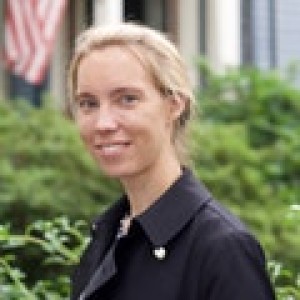
Monday Aug 26, 2019
Episode 074 - Karin Oberg
Monday Aug 26, 2019
Monday Aug 26, 2019
- Karin Öberg is Professor of Astronomy and Director of Undergraduate Studies in the Department of Astronomy at Harvard University. Planetary formation—or stars and stellar evolution—is a focus of her research. She is a member of the Board of Directors of the Society of Catholic Scientists. See her CV here.
- Öberg spoke of her first academic route to astronomy being via chemistry rather than physics. She discovered the field of astrochemistry while an undergraduate at the California Institute of Technology. She earned her PhD in astrophysics at Leiden University in the Netherlands.
- She joined the faculty at the University of Virginia in 2012. One year, later, she received an assistant professorship at the Harvard-Smithsonian Center for Astrophysics, which is located at Harvard.
- Öberg was baptized as a Christian in her youth but then drew away from the faith. She said she never adopted an atheistic, materialistic perspective largely because of two key principles she holds to: moral realism and one’s personal agency as an individual making free decisions.
- During her college years, Christianity remained a living question for her partly because of the friends with whom she associated. Books influenced her deeply: Lord of the Rings, The Screwtape Letters, The Abolition of Man, Mere Christianity, and Orthodoxy. This combination brought her back to Christianity, first in the Anglican Church.
- After joining the faculty at Harvard, she completed a two-year RCIA program at St Paul’s Parish in Harvard Square to join the Catholic Church. One concern she felt in her new Catholic experiences, she said, was that the statements in the Mass did not always seem to line up with personal beliefs articulated by individuals.
- Öberg said she has not personally experienced any bias against her Catholicism at Harvard, and indeed she has felt welcomed in the astronomy community and among other colleagues. She helps to mentor some Catholic and Christian students. Some Catholic colleagues have experienced prejudice, in the biology department, for example. She said one factor is that her research does not touch on any controversial subjects. But she wants to let students know they should not be anxious about living out their Catholic faith because of fear of prejudiced encounters. Overall, being open about one’s faith has a net positive effect on oneself and others, despite occasional crosses one might have to bear.
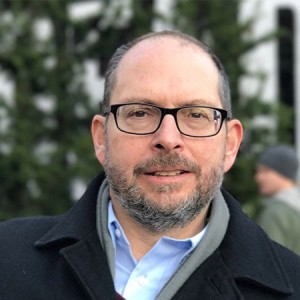
Monday Aug 19, 2019
Episode 073 – Jonathan Lunine
Monday Aug 19, 2019
Monday Aug 19, 2019
In this episode we have Jonathan Lunine on the podcast, this time talking to him about his own spiritual journey from Judaism to Catholic Christianity, and from the secular surface of life as a scientist to a deeper life where the beauty of science is one prominent part of a larger whole of human experience. We also get the chance to discuss some of his work in studying the planets during the era when they changed from objects seen through a telescope to worlds we can map and even sample and bring back to our laboratories.
- Jonathan Lunine, a planetary scientist at Cornell University, is a member of the board of the Society of Catholic Scientists. He spoke of the influence of reading Carl Sagan’s The Cosmic Connection and receiving Sagan’s advice for pursuing a career in astronomy.
- Dr. Lunine has been on the scientific teams leading several missions of space exploration, including Cassini and, now, the James Webb Space Telescope.
- He described his early spiritual journey, seeing how science and religion could be intertwined. The journey took him from Jewish family roots to a Methodist church and then to Catholicism. He spoke of being impressed by the connection between the Catholic faith and its Jewish roots.
- Astronomers have been excited to learn of the abundance of planets to be found in our galaxy. As Dr. Lunine pointed out, thanks to initiatives like the New Horizons spacecraft, we have turned our “cosmic backyard” into a place where we can study an enormous variety of geology “and even, potentially, biology.”
- He expressed gratitude for astronomers and others who became role models embracing the compatibility between science and faith. A key figure, about whom he has made presentations, is the Belgian priest Georges LeMaitre, known as the father of the big bang theory.
This was one of our most enjoyable conversations, and we definitely hope to have Dr. Lunine back on the podcast again.
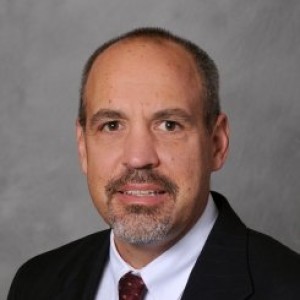
Monday Aug 12, 2019
Episode 072 - Benjamin Rybicki
Monday Aug 12, 2019
Monday Aug 12, 2019
- Dr. Benjamin Rybicki, a member of the Society of Catholic Scientists, is Senior Research Scientist in the Department of Public Health Services at Henry Ford Health System in Detroit. He received his PhD in Epidemiology from the University of Michigan. His research focuses on the epidemiology, demographics and genetics of sarcoidosis, Parkinson’s disease, and prostate cancer.
- There is a strong humanistic theme in biology, and it does entail a deep concern about human beings, but Dr. Rybicki said his experience suggests the humanistic impulse is separated from religious faith in many cases. His particular interest in epidemiology grew partly from an interest in the application of statistics to medicine. At the Henry Ford Hospital, there is a large population of African American patients, among whom there is a heightened risk from prostate cancer and sarcoidosis.
- Berylliosis, which occurs more rarely from beryllium exposure, has a similar genetic susceptibility pattern to sarcoidosis.
- background can increase the risk of, and the behavior of, certain diseases as experienced by people, although it’s not directly related to race. African Americans tend to have a different inflammatory response to pathogens than people of European descent.
- Sarcoidosis is an inflammatory disorder, most commonly in the lungs. It varies in how it progresses and presents itself. The treatment of choice is steroids, and they also have particularly important side effects.
- One’s Catholic faith is an important element in the practice of medicine. An understanding of the human person made in the image of God will influence one’s decisions, including the choice of treatments and the balance of risks and benefits, Dr. Rybicki said. This shows itself, for example, in considering quantity and quality of life and what medicine can provide. We must be mindful of how we’re respecting the dignity of the human person through medical interventions. We must think about how to improve the human condition without getting carried away with ideas of manipulating other factors—extending to intelligence and physical prowess. “I can definitely see that coming down the pike.” Doctors may enhance aspects of life that have nothing to do with the disease condition they’re treating. For example, choosing to change a gene might lower your heart disease but also increase your risk of cancer. We have to be careful. Consider where are we going in the direction of creating a highly medicated society, treating everything with drugs without considering alternatives such as behavioral changes. Tinkering with the human body can have unintended effects. Dr. Rybicki shares this insight with young Catholic doctors: Make your Catholic faith a strong part, a driving force, in the work you do. (Editor’s note: By the way, listeners may be interested in the mission of the Catholic Medical Association.)
- Dr. Rybicki devoted part of his talk to Jerome Lejeune, a pioneer in genetics and in the understanding of Down Syndrome who took his Catholic faith very seriously. Now declared a Servant of God on the pathway toward possible canonized sainthood, Lejeune made sacrifices in his medical career as he maintained his principles about the dignity of every human life while medical science took a different course regarding Down Syndrome.
- The 2019 Society of Catholic Scientists conference was very well done, Dr. Rybicki said. He said he enjoys learning about subjects with which he is not familiar, and conference attendees seemed to share that experience. Videos from the conference are available on You Tube.
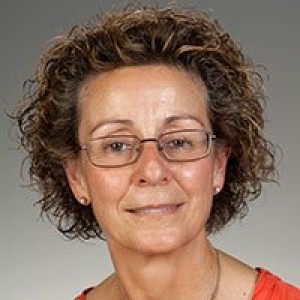
Monday Aug 05, 2019
Episode 071 - Sonsoles de Lacalle
Monday Aug 05, 2019
Monday Aug 05, 2019
- Sonsoles de Lacalle, a physician and neuroscientist, has recently taken the position of professor and Chair, Health Science, at California State University Channel Islands. She previously served as associate professor of biomedical sciences at Ohio University and Director of the Office of Advanced Studies in Ohio University’s Heritage College of Osteopathic Medicine.
- Dr. De Lacalle, a member of the Society of Catholic Scientists, holds both an MD and a PhD from the University of Navarre in Spain.
- Her research focuses on the field of aging and dementia and the effects of estrogen on brain cells. She sees her pursuit of positions in research and administrative support of research advancement as an extension of her Catholic faith. She sees herself as a “builder” of support systems bearing fruits of well-being for all through the advancement of important research.
- De Lacalle cites the Opus Dei message of building one’s relationship with the Lord and extending Christian values and virtues through one’s everyday professional work.
- She said there are signs in the world’s current culture of a strong, concerted attack against the idea of God and against the idea that we are the mere creatures of a supernatural Creator. Amid the challenges facing believers today, we can draw hope from confidence in the truth and victorious love of the Kingdom of God—we know how the story ends. Through her connection to the study of osteopathic medicine at Ohio State, she saw the value of that field’s commitment to care for the entire person and to respect each person’s inherent dignity.
- Another positive sign she has seen is a trend which may be beginning with New York University’s plan to offer free tuition to its students preparing to be doctors. It is hoped that leaving graduates unencumbered by debts could make them better able to enter certain fields of care where additional medical personnel are especially needed but remuneration is relatively low.
- Among the current research in which de Lacalle wants to spread the word about crucial impacts for human well-being is the study of human physical activity and exercise—their high correlation with brain health through the production of lactic acid, which supports the brain’s executive functions in neurons.
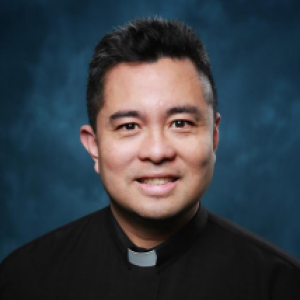
Monday Jul 29, 2019
Episode 070 - Nicanor Austriaco
Monday Jul 29, 2019
Monday Jul 29, 2019
In today's episode we sit down with Fr. Nicanor Austriaco, a Dominican friar, biologist, and bioethicist on the faculty at Providence College. Similarly to our interview with Fr. Lawrence Machia, we discuss the way in which science and a vocation to both the priesthood and life in a specific religious order intertwined in his life, with the additional perspective that his Filipino heritage contributes to his understanding of his vocation and the culture here in America.
- Rev. Nicanor Austriaco, O.P., Ph.D., is a Dominican priest and molecular biologist, on the faculty of Providence College. See his page on the college’s website.
- Cells carry a genetic program for self-death for the good of the organism. Cancer cells do not exercise this self-death. Here is one explanation of that phenomenon.
- Fr. Austriaco belongs to the Eastern Province of the Dominican Order. An early introduction within that order entails learning to remain silent, to trust in the loving presence of God. We talked about the American cultural propensity for busy-ness as a key to one’s sense of success.
- How can we think about the intersection of biological science and moral theology? Fr. Austriaco said this. Biology can help you figure out what’s good for you and what’s not good for you. We are creatures shaped by God through an evolutionary process that took place over a long time frame. Our fulfillment includes trying to understand which of our instinctual desires are perfected and which ones still have to be mastered. That’s the gist of Catholic moral theology. God calls us to joy, and that includes our fulfillment as the biological creatures we are. We must figure out what pleasures achieve the fulfillment of our nature and lead to joy. Pleasure is a grace; it can be a very good thing so long as the pleasure is ordered to our true human nature, our integral human fulfillment, what Christ calls us to.
- Is there a sense in which the Catechism of the Catholic Church is like an “owner’s manual” for the human being in living out a human life? Fr. Austriaco explained that the Gospel is a love letter from God, inviting us into friendship. The Catechism shows us the expectations that come with accepting that friendship. It’s not about what we “have to do” but what we want to do because the friendship is offering the relationship with Christ that brings us fulfillment. An “owner’s manual” concept suggests rules to follow to avoid car malfunctions, but our pursuit is more of a proactive response to God’s invitation of love and happiness. A mechanistic approach like an “owner’s manual” still suggests “I’m in charge” as an individual with a checklist—a deeply American interpretation, as Fr. Austriaco pointed out.
- Shortly after speaking at the annual conference of the Society of Catholic Scientists, Fr. Austriaco also spoke at the Vita Institute, sponsored annually by the de Nicola Center for Ethics and Culture at the University of Notre Dame as an intensive overview of Catholic pro-life principles.
- You can see Fr. Austriaco’s talk to the Society’s 2019 conference on YouTube. You’ll also find there a video of Fr. Austriaco’s 2017 lecture, “Defending Adam after Darwin.”
16:00 dogs and chocolate; biology gives us a specific perspective on what is good and bad for us.
18:00 pleasure and its purpose as well as how it leads us astray
20:00 Bill and the "owner's manual" perspective
22:00 rules secondary to relationships
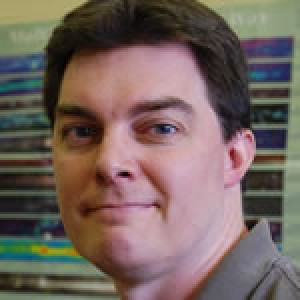
Monday Jul 22, 2019
Episode 069 - Fr. Lawrence Machia OSB and Daniel vanden Berk, part II
Monday Jul 22, 2019
Monday Jul 22, 2019
- For background on Fr. Machia and Dr. Vanden Berk and this interview, see the show notes for Episode 68.
- In Episode 69, we mentioned approvingly one of the many books about Galileo, who was central to Fr. Machia’s talk at the conference. The book is Galileo’s Daughter. Contrary to a still-commonplace assumption in popular culture and the average person’s understanding of history, Galileo did not see his life as one centered on conflict with the Catholic Church.
- People’s instincts to see a huge conflict between science and religion in our own time deserve to be taken seriously. Co-host Paul points out that, even in his youth, he was interested in the polemic potential between his faith and his interest in geology. This was crystallized (no pun intended) by his reading of Great Geological Controversies, published in 1983 by Oxford University Press. It identified challenges—among scientists themselves—which were raised to previous understandings in geology.
- How can scientists of faith, such as the members of the Society of Catholic Scientists, play a role in addressing the conflict between science and religion as it exists today? They can act as witnesses to the compatibility of the two fields of knowledge in their own lives, said Dr. Vanden Berk.
- Fr. Machia pointed out that, as expressed by Saint John Paul II, one key to the compatibility is that one discipline does not pretend to do what the other does. Don’t read the Bible as a science text, he said, since science is not what the Bible is about; it spends a relatively tiny amount of time on subjects that might be construed to be science-focused. The two fields of knowledge have their own distinct competencies.
- Saint John Paul II wrote about the compatibility of science and religion. Here’s an essay by noted bioethicist Father Tad Pacholczyk on the subject, drawing from John Paul’s insights.
- As Fr. Machia points out with reference to the insights of Pope John Paul, one area of relationship between the disciplines of science and religion is the subject of ethics. After all, what’s the point of doing anything, like scientific research, if you’re not thinking about why you’re doing it? In the case of science, humans confront issues of power over creation—and how to exercise that power. That answer is informed by how we see our humanity, and that question was exactly the topic of the SCS conference at which we held this podcast discussion.
- Galileo himself wrote about the compatibility of these fields of knowledge in his letter to Madame Christina of Lorraine in 1615. Here’s an essay discussing that letter.
Times continue from the Episode 68 listing.
28:00 Galileo's Daughter
30:00 Biblical minimalism
32:00 Geological arguments about the Flood
34:00 Conflict thesis persistence; Daniel another who never saw the conflict
36:00 Need to teach the contemporary theory, wherever our religious theories place us
37:00 Contributions of Catholic scientists to the future of science: need to respect the "volume argument"
38:00 Galileo on the Bible as not an astronomy textbook
40:00 Past, present and future of science
42:00 Wrapup
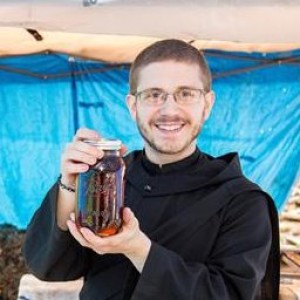
Monday Jul 15, 2019
Episode 068 - Fr. Lawrence Machia OSB and Daniel vanden Berk, part I
Monday Jul 15, 2019
Monday Jul 15, 2019
- Father Lawrence Machia, OSB, is a Benedictine monk at St. Vincent College and Archabbey in Latrobe, PA. The public can view his 2019 Society of Catholic Scientists presentation on You Tube.
- Father Machia’s talk made reference to Galileo’s letter to Benedetto Castelli.
- Dr. Daniel Vanden Berk is an associate professor of physics at St. Vincent College.
- Fr. Machia and Dr. Vanden Berk, both very interested in astronomy, have worked together on designing planetarium shows on the St. Vincent campus. They have always seen the complementarity of science and religion, faith and reason, in contrast to many people’s rejection of religion based on supposed conflicts with scientific, rational, experiential learning.
- Dr. Vanden Berk was intrigued at an early age by the “Cosmos”- series presented on PBS by Carl Sagan, but the program posited a conflict between science and faith.
- Among Dr. Vanden Berk’s astronomical adventures: working on the Sloan Digital Sky Survey. He has worked with the Fermi National Accelerator Laboratory, processing data captured by the Digital Sky Survey.
Episode timeline:
3:00 Machia's time in college, science to theology
5:00 Machia's beginning to discern a religious vocation
8:00 St. Vincent College and the archabbey
10:00 Pre-novitiate and novitiate
12:00 Vows
15:00 Why TSSM, following on from Lawrence's plans to finish and continue his physics education
16:00 Begin vanden Berk
18:00 Sci-fi influences
20:00 He and his wife's discernment process
22:00 Daniel's early career, the early Hubble mission
24:00 Sky surveys
26:00 Texas sky survey
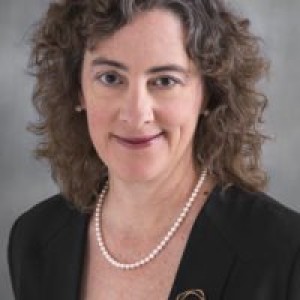
Monday Jul 08, 2019
Episode 067 - Maureen Condic, part III
Monday Jul 08, 2019
Monday Jul 08, 2019
-
The conversation involving Dr. Condic, Dr. Giesting and Schmitt turned to the complexities of the nation’s debate about abortion. That debate engages a mix of biological facts (which may or may not be probed in the full context of updated knowledge), personal experiences, and deeply held principles, positions, and emotions including authentic sympathy for the circumstances in which pregnant women find themselves. Although providing scientific insights is a crucial advancement of the debate because people deserve to have comprehensive information, the laying out of certain biological facts alone will not necessarily change minds, Condic said.
-
In many cases, much of the public presentation of the abortion controversy dividing people is manufactured, but there is room for honest discussion on particular grounds. We each can play a part in adding to human understandings in this controversy. People evolve their judgments on the wide scope of the debate incrementally over time.
-
But the search for a full overview is complicated; indeed, Dr. Condic referred to difficulties she and her brother Samuel Condic encountered (different vocabularies, etc.) in compiling their book Human Embryos, Human Beings. The book aims to bring together philosophical and biological insights about human life at its beginning. In short, the abortion debate requires us to spend more time in listening to each other, asking questions, probing the basis of people’s stances, and less time in simply lecturing, she said.
-
Paul talked about his experience with identical twins in his family. Twinning is a complex arena for understanding “who you are,” raising core questions with biological and philosophical implications. Our discussion around the microphone extended to research on the topics of compaction and chimeras. Condic has written a book that delves into the complexities. Untangling Twinning is scheduled for publication this summer.
-
There are also biological phenomena complicating an understanding of our human nature in sexual terms. There can be complex factors differentiating between one’s genetic sex and one’s hormonal sex, Condic said. A very small segment of the population has genetically compound sexual identities. Intersex disorders can occur in a variety of ways, although in the vast majority of cases questions of a person’s gender identity are not grounded in physical causes, Condic said. Studies in some areas raise questions within the LGBTQ community itself. Among many, endeavors focusing on a “gay gene” that would undergird a statement that “I was born this way” have been diminished by a view that gender identity is fluid or is driven by non-genetic factors.

